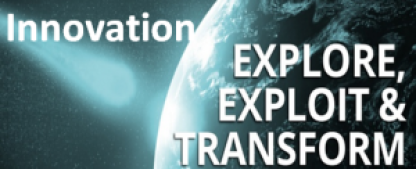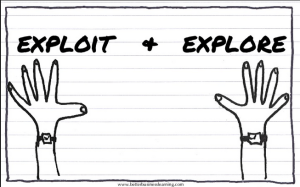 The most impressive presentation I reviewed in 2017 was the one from Munich Re, held on 21st November 2017 under their investor day link
The most impressive presentation I reviewed in 2017 was the one from Munich Re, held on 21st November 2017 under their investor day link
This, for me, was so well structured and offered such a high level of clarity on the pathway they are pursuing, combining innovation and digital, with the outcomes emerging, of building a new suite of Business Models.
I can only simply touch on it here, I suggest you do your own drawing of conclusions.
The Insurance industry has been struggling to adjust and adapt to the rapid changes occurring yet so many are hanging onto the traditional way of doing things. It is so refreshing to see how Munich Re are venturing out, exploring and exploiting, in multiple ways to learn a new innovation pathway.
I follow the two big Re-Insurers, Swiss Re and Munich Re specifically and the innovative differences are quite significant. Swiss Re seems locked far more into traditions and I am still to be convinced they have yet to embrace innovation, certainly from an external perspective, in the same way as Munich Re is undertaking. I struggle with Swiss Re’s messages on where they are exploring the future of Insurance. The way I view, it seems far more unclear, even random, they seem far more closed down with isolated attempts to explore opportunities. Whereas Munich Re is constantly opening up to change, exploring and seems far more comprehensive and holistic. It seems one is undertaking “words are simply spoken” the other “actions underscored”. Maybe I am wrong. Continue reading “Munich Re offers a real clarity to their innovating future”

